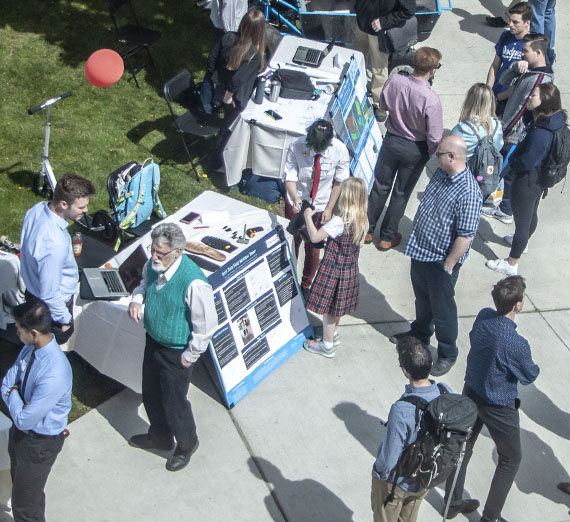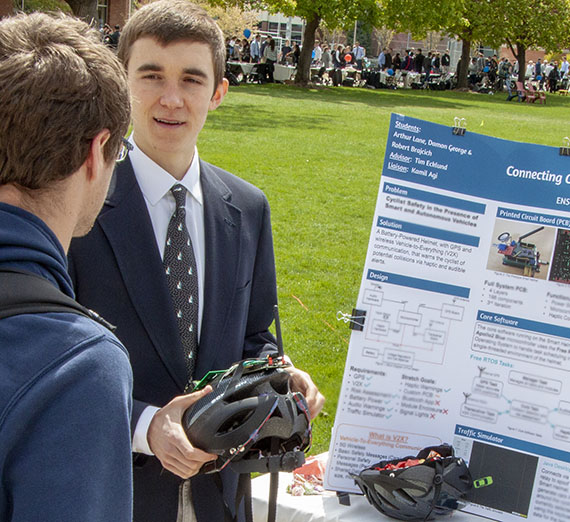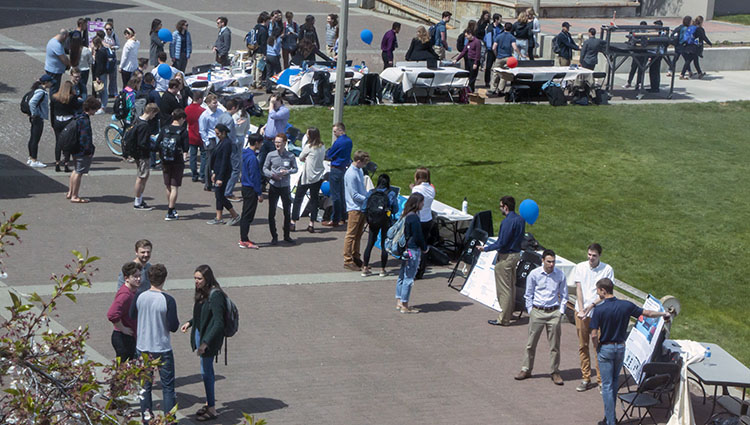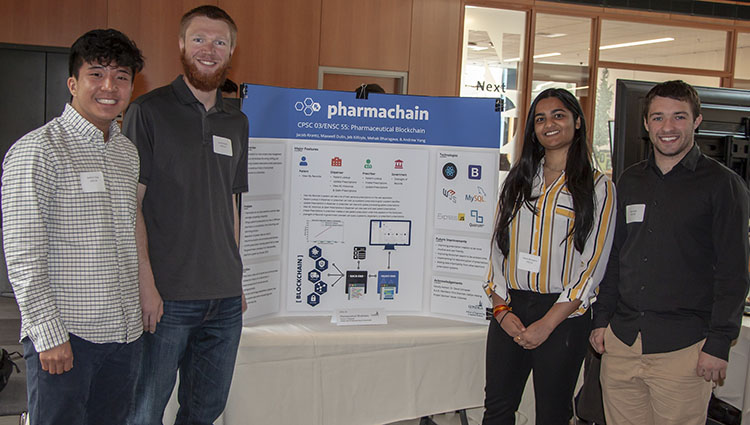Innovation On Display at Design Expo 2019

An app to improve academic planning for studying abroad. A towable power generator for an electric vehicle. A small-scale water purifier that makes sea water drinkable for an entire family in a few hours. These were a few of the 59 engineering or computer science senior design projects presented at the Design Expo on May 1.
While many students proposed their own ideas a year ago, most of the projects came straight from industry partners, including Kaiser Aluminum, Avista, Boeing, Schweitzer Engineering Lab, Nick’s Boots and Buck Knives. Each project had guidance from someone provided by the sponsor, a faculty advisor, and a member of the Design Advisory Board – regional professionals who critique the presentations and give helpful feedback.
Seniors in the School of Engineering & Applied Science (SEAS) spend two semesters working on their plans, prototypes or models. At the Expo, they showcased their results with poster presentations and displays lining the Foley Lawn and inside the Hemmingson Center.
"I was greatly impressed by the creativity and enthusiasm exhibited by almost all of the students in presenting their projects,” said Dr. Joseph Fedock, Interim Dean of SEAS. “What pleased me the most was to hear one student, with a big smile on his face, say 'I really had fun doing this'. That's wonderful!"
More than two dozen judges, mostly faculty or staff related to SEAS, chose three particular teams as Expo highlights.
Trafixx: The Smart Traffic Grid team developed two products to update a city’s traffic grid infrastructure and let traffic flow more efficiently. Using data provided by the City of Spokane, Nick Hopwood, Trevor Flynn and Tyler Willis developed software to analyze current traffic patterns and run simulations. The software uses machine learning (artificial intelligence) so over time it would be able to recognize conditions that make traffic flow best. The team developed computerized hardware to plug into each intersection’s controller, managing the traffic signal according to what the software indicated was the most efficient vehicular traffic according to the specific needs of the moment.

The Pharmaceutical Blockchain project verifies and manages sensitive data around prescription writing and pharmacy fulfillment. Mehak Bharagava, Max Dulin, Jeb Kilfoyle, Jacob Krantz and Andrew Yang tested blockchain technology to prove it could securely store a patient’s prescription data, meeting HIPAA technical safeguards. They also developed a user interface to work with the blockchain and access the data properly. The team believes their product is a significant step towards the U.S. government mandate for an interoperable, electronic pharmacy management system by 2023.
The Center for Engineering Design and Entrepreneurship oversees the senior design process, including matching regional projects with student teams. Information about sponsoring a project is available through CEDE Director Toni Boggan.


